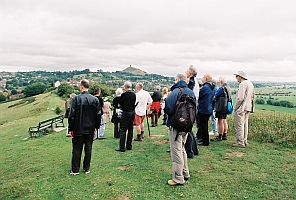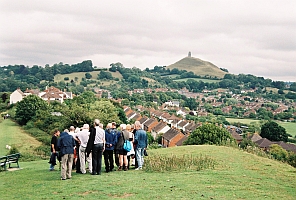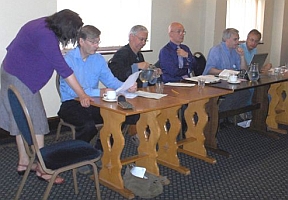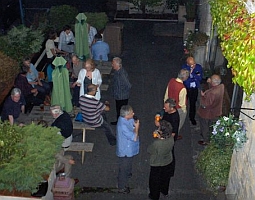Grail Visions
The Conference was held from Friday 20 August to Sunday 22 August 2010 at The Wessex Hotel, Street.
Conference Prospectus
This year the conference returns to the West Country, and to Street only two miles from Glastonbury, and suitably concentrates on what for many is John Cowper Powys’s greatest novel, A Glastonbury Romance. Glastonbury is certainly Powys’s most populous work:
Why, I have the whole life of a community on my hands; with housewives, lawyers, doctors, chemists, innkeepers, procuresses, clergymen, servants, old-maids, beggars, madmen, children, poets, landowners, labourers, shop-keepers, an anarchist, dogs, cats, fish, and an airplane pilot … There are no less than six major love affairs, one murder, three births, two deaths, and one raising from the dead.
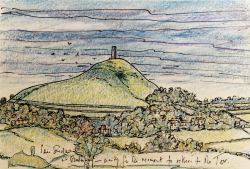
Philosophically, the book is equally speculative and wide-ranging, with its own home-made cosmology, the visions (or are they “creative lies”?) of Johnny Geard and Sam Dekker, the sceptical disenchantment of John Crow, and the scientific materialsm of his industrialist cousin Philip. Its conclusion, “Never or Always”, strikes the characteristic Powysian note of ambivalence. I do not know what our speakers will say, but I suspect they will speak from very different points of view. Paul Weston is learned in the Arthurian myths of Glastonbury that Powys drew on deeply for his book, and which inform it, often in veiled ways, at every step. Paul will also lead us on a Saturday afternoon walk up Wirral Hill and to many of the sites made vivid in the imaginative world of the novel. Anthony O’Hear will bring an entirely different philosophical background to the book. Harald Fawkner’s talk on “modes of regeneration” suggests the many ways in which, as John Geard might have said, the imagination “brings new life” to a Terre Gastée – the “wasteland” of desolation that was known to the mediaeval romancers, to T.S. Eliot, and to Powys himself. Eivor Lindstedt, speaking about Myrddin Wyllt in Porius, will take forward the story of Merlin, who is present in symbolic and allegorical form in Glastonbury itself.
Other Powyses will also be present: Stephen Powys Marks will talk about Caroline Powys (1738-1817), perhaps an exception among the country-bound Powyses, for when not in London, she longed to be in Bath. She was distantly related to Jane Austen, and her journals, spanning 52 years, provide vivid glimpses of upper class life in the late 18th and early 19th centuries. The Saturday evening entertainment produced by Chris Wilkinson and Louise de Bruin will also provide insight in to the lives of unjustly lesser-known Powyses. Katie (Philippa) Powys, whose novel The Blackthorn Winter was recently republished by the Sundial Press, is increasingly becoming recognised as a writer to rank alongside her more famous brothers. The startling landscapes of Kenya, where the youngest brother Will settled and farmed, inspired Llewelyn Powys to write Ebony and Ivory. John Cowper Powys himself will also live and move and have his being: there will be a chance to see again the Fox Movietone screen test made in 1929, in which John Cowper prepares for his debate with Bertrand Russell, “Is Modern Marriage a Failure?” This extraordinary and arresting film, discovered by Antony Head, was last shown at a society conference more than fifteen years ago.


